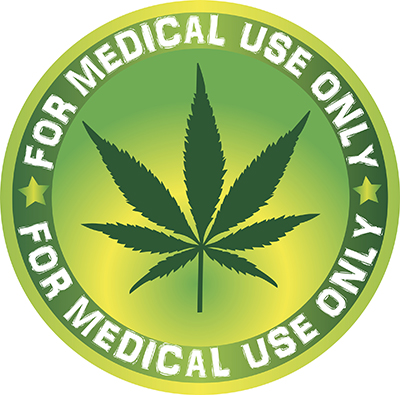By Eric Ebbert
Medical marijuana laws are not only spreading across America, but they are beginning to expand even further after they are passed. Currently 33 states plus the District of Columbia have legalized the medical use of marijuana. These states typically require patients to be certified by a physician and to register with the state. Some states also provide workplace protections to employees who lawfully use marijuana for medicinal purposes.
In addition, ten states and the District of Columbia have approved recreational use of marijuana for adults who are 21 years and older. Some of these laws even allow individuals to grow their own marijuana.
Thirteen of the 17 states (including Tennessee) that don’t allow medical use of marijuana have passed legislation to permit the use of cannabis oil. That means that only four states still prohibit the use of marijuana in any of its forms (Idaho, South Dakota, Nebraska, and Kansas).
Federal law still prohibits distribution and possession of marijuana regardless of its use. In fact, a 2016 Drug Enforcement Administration rule reiterated that CBD is an illegal substance — just like other marijuana products — under federal law.
Media coverage extolling the virtues of marijuana use — either medicinally or recreationally — often overlooks the adverse health effects associated with marijuana use and other social costs related to drug use including increased work injuries, increased medical costs, increased absenteeism from work, and less productivity while at work.
How Did We Get Here?
Industrial hemp was commonly used for the production of many products in our country dating back to 1645. America produced hemp for the British Crown, but shortly after the American Civil War, hemp production declined because cheaper substitutes came to market. Later, Congress passed the Marijuana Tax Act of 1937 with the intent of reducing marijuana production. This Act required hemp producers to register with the federal government. After a short spike in hemp production during World War II, commercial industrial hemp production in the United States ended in 1958. Thereafter, Congress enacted the Controlled Substances Act of 1970 which categorized any product containing THC as a Schedule I drug.
In 1996, California became the first state to legalize medical marijuana. See https://en.wikipedia.org/wiki/Timeline_of_cannabis_laws_in_the_United_States. From there, other states followed. Then in 2004, the Ninth Circuit Court of Appeals held that the Controlled Substances Act of 1970 did not authorize the Drug Enforcement Administration to regulate sterilized hemp seed, fiber, and seed oil. Until that holding, those products were prohibited by the Act. Thereafter, hemp could be imported and used for certain products. In 2014, Congress enacted legislation that prohibited the Justice Department from interfering with state medical marijuana laws. Id. In 2018, the federal Farm Bill Act was enacted and de-scheduled hemp from the statutory definition of marijuana. See https://en.wikipedia.org/wiki/2018_United_States_farm_bill.
It also created a regulatory system for the production of commercial hemp. Id. The once-dead hemp industry grew into a $1.1 billion industry by the end of 2018 and is expected to double by 2022. See https://www.cnn.com/2019/04/09/success/hemp-farmer/index.html.
Recent Expansion of New Jerseys’ Medical Marijuana Law
In July of this year, New Jersey’s Medical Marijuana Law was expanded to increase the supply of marijuana and to make it easier for registered users to obtain it. Since Governor Murphy took office in January, he has worked to expand the program, and the number of registered users has more than tripled to exceed 59,000.
The latest legislation reduces the number of doctor’s visits from four to one per year to verify that the patient still qualifies under the Medical Marijuana Act. And patients can now purchase three ounces per month instead of two. In addition, terminal patients will have no limit on the quantity they can use. Nursing homes are now authorized to purchase marijuana on behalf of their residents. And registered marijuana users from other states will be permitted to purchase marijuana while visiting New Jersey. The new law will allow 24 more marijuana producing businesses to be licensed to increase the supply. And the Act phases out sales tax on marijuana so that it will be purchased tax-free by 2022. The Act also creates the New Jersey Cannabis Regulatory Commission to administer the new law.
Tennessee Law
Tennessee permits the use of cannabis oil as long as it is derived from industrial hemp, not marijuana, and contains no more than .3% of THC. Despite the growing efforts to legalize medical marijuana, the Tennessee legislature has not enacted the required legislation. But its supporters are expected to try again next year.
Practical Tips
- Know the Law
The evolution of the New Jersey law underscores the importance of employers keeping up with the law in the states in which they operate. Not only are the laws not uniform, but they continue to evolve after the initial legislation has been enacted. Moreover, in some jurisdictions the laws expressly create employer liability for discriminating against card-carrying marijuana users. In some states, courts have found similar protections even though the legislation does not expressly provide the protections. Employers, therefore, must be aware of the laws and how courts have interpreted those laws to ensure that their policies do not violate those laws.
- Consider Focusing Your Policies on Impairment
Even though the majority of states have passed medical marijuana laws, none of the laws prohibit an employer’s right to discipline an employee for being impaired while at work. However, unlike alcohol, a positive drug test for marijuana does not necessarily mean that the employee was impaired at the time of the test. Evidence of marijuana use remains in the human body long after its effects have dissipated. So instead of having a policy that disciplines employees for a positive marijuana drug test, consider modifying your policy to discipline employees who are impaired while at work.
These are common short-term symptoms of marijuana impairment: “panic, anxiety, poor muscle and limb coordination, delayed reaction times and abilities, an initial liveliness, increased heart rate, distorted senses, [and] red eyes.” See https://americanaddictioncenters.org/marijuana-rehab/how-to-tell-if-someone-is-high.
By being aware of the applicable medical marijuana laws and amending policies to focus on impairment, employers can avoid a new breed of discrimination claims.

